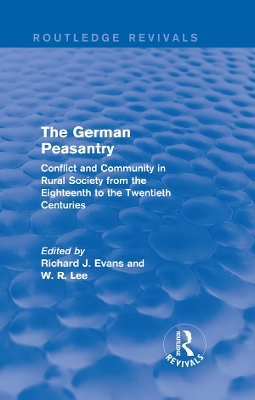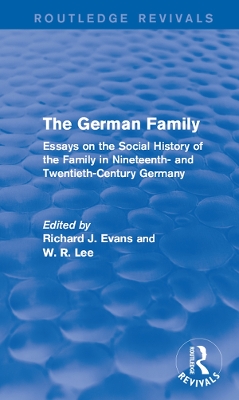Routledge Revivals
6 total works
Society and Politics in Wilhelmine Germany (Routledge Revivals)
by Richard J. Evans
In the search for the causes of the First World War and the origins of Hitler's 'Third Reich', the attention of historians has turned increasingly towards the development of German society under Kaiser Wilhelm II.
These ten essays, first published in 1978, introduced interpretations of Wilhelmine Germany to an English-speaking audience and contributed towards the discussion of these interpretations that were taking place amongst German historians.
This book is ideal for student of history, particularly German history.
This book, which was first published in 1988, deals with the neglected history of the lowest layers of German society, of marginal, outcast and deviant groups such as arsonists, witches, bandits, infanticides, poachers, murderers, prostitutes, vagrants and thieves, from the end of the thirteenth century to the middle of the twentieth. This book is ideal for students of history, particularly the German history.
The German Peasantry (Routledge Revivals)
by Richard J. Evans and W. R. Lee
This book, first published in 1986, surveys the history of rural society in Germany from the eighteenth century to the present day. The contributions include studies of Junker estates and small farming communities, serfs and landless labourers, maidservants and worker-peasants. They demonstrate the variety and complexity of the social division that structures the rural economy. Throughout the book there is an emphasis on the conflicts that divided rural society, and the ways and means in which these were expressed, whether in serf strikes in eighteenth-century Brandenburg, village gossip in early twentieth-century Hesse, or factional struggles over planning permission in present-day Swabia. The rural world emerges not as traditional, passive and undifferentiated , but as actively participating in its own making; not only responding to the changes going on around it, but exploiting them for its own purposes and influencing them in its own way. This book is ideal for students of history, particularly German history.
This book surveys the history of the German family in the nineteenth and twentieth centuries. The contributions deal with the influence of industrialisation on family life in town and country, with rural families and communities under the impact of social and economic change, and with the role and influence of the family in the lives of men and women in the newly-emerged working class.
Research on the history of the family had so far, at the point of this book's publication in 1981, concentrated on England and France; this book adds an important comparative dimension by extending the discussion into Central Europe and bringing fresh evidence and interpretation to bear on the wider debate about the effects of industrialisation on family structure and family life as a whole. The authors approach the subject from a variety of perspectives, including social anthropology, oral history, economic history and feminist studies.
This book is ideal for students of history, particularly the history of Germany.
In Rereading German History, first published in 1997, Richard J. Evans draws together his seminal review essays on the political, economic, cultural and social history of Germany through war and reunification. This book provides a study of how and why historians - mainly German, American, British and French - have provided a series of differing and often conflicting readings of the German past. It also presents a reconsideration of German history in the light of the recent decline of the German Democratic Republic, collapse of the Berlin Wall and the reunification of Germany.
Rereading German History re-examines major controversies in modern German history, such as the debate over Germany's 'special path' to modernity in the nineteenth and twentieth centuries, and the discussions in the 1980s on the uniqueness or otherwise of Auschwitz. Evans also analyses the arguments over the nature of German national identity. The book offers trenchant and important analytical insights into the history of Germany in the last two centuries, and is ideal reading material for students of modern history and German studies.





